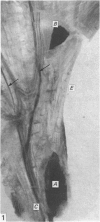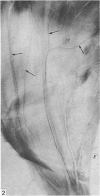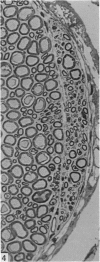Abstract
The origin and content of the tentorial nerve in cynomolgus and rhesus monkeys were studied using light and electron microscopic inspection of interrupted serial sections of the trigeminal/cavernous sinus region combined with selective nerve degeneration. The nerve was invariably a branch of the cavernous plexus rather than a branch of the trigeminal ganglion or ophthalmic nerve as described in earlier reports. The cavernous plexus branch forming the tentorial nerve joined and passed back in the trochlear nerve while it remained in the lateral wall of the cavernous sinus, then left the trochlear to be distributed in the tentorium cerebelli. It was composed of trigeminal fibres mainly from the ophthalmic division together with sympathetic fibres from the superior cervical ganglion. The source of another group of unmyelinated fibres was unidentified but they are likely to be parasympathetic.
Full text
PDF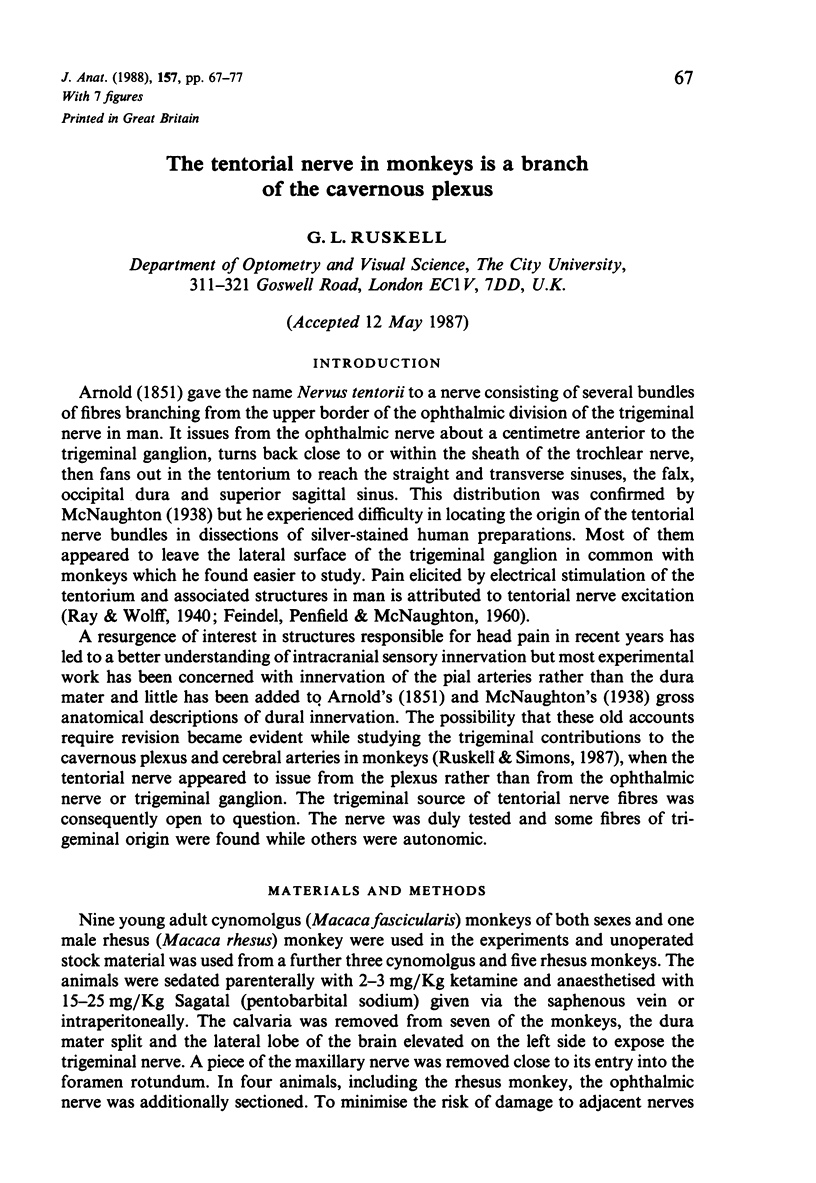
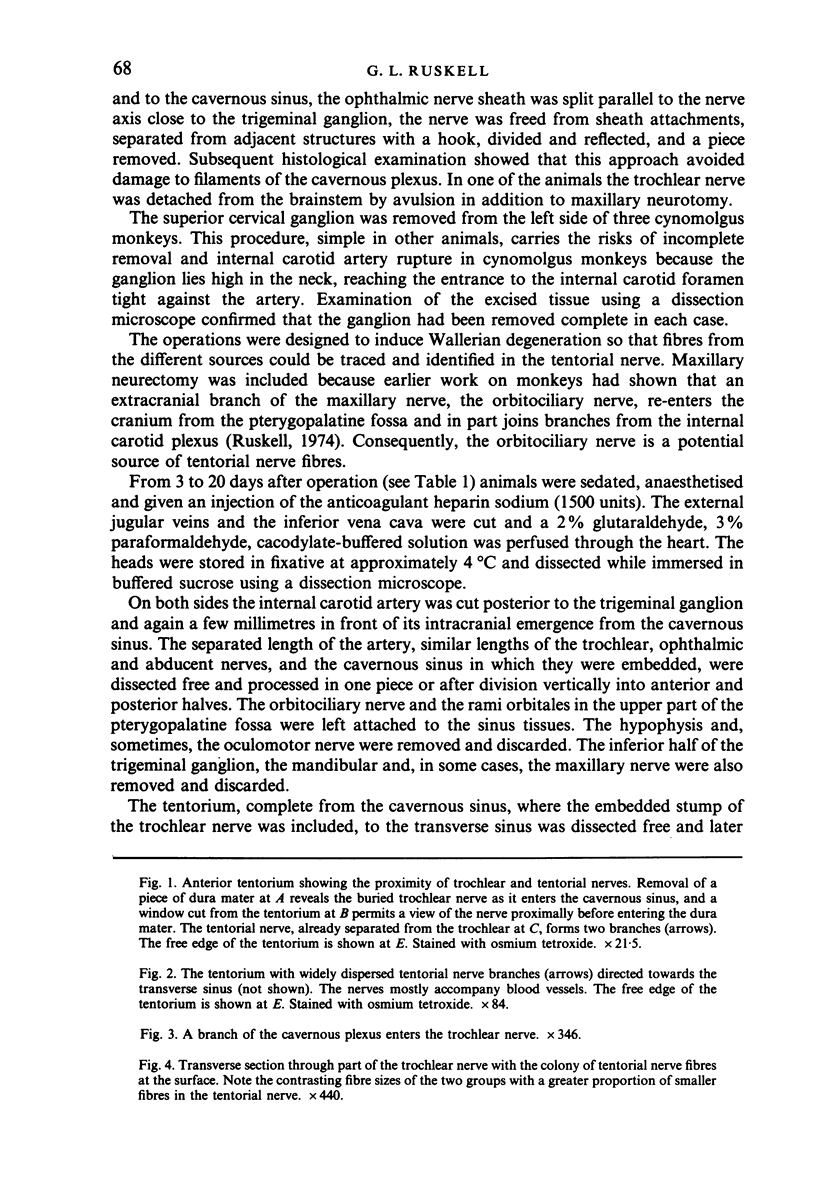

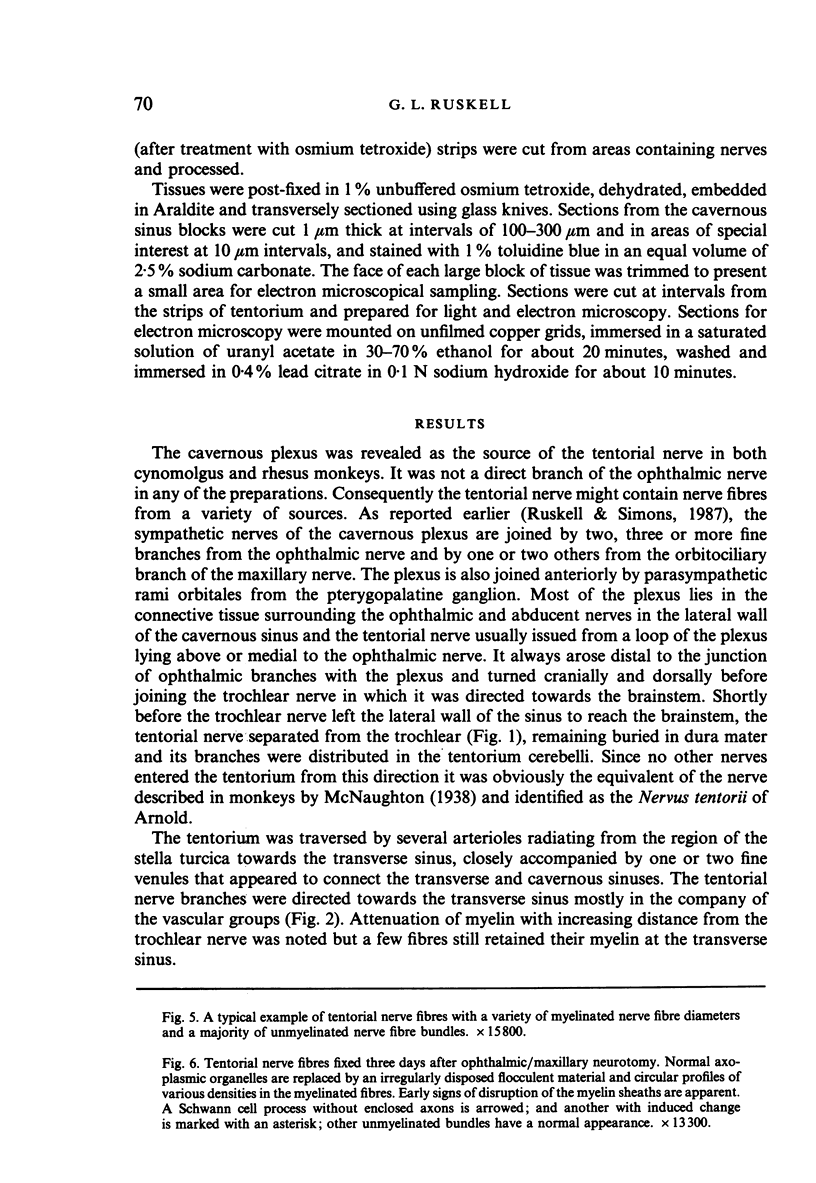
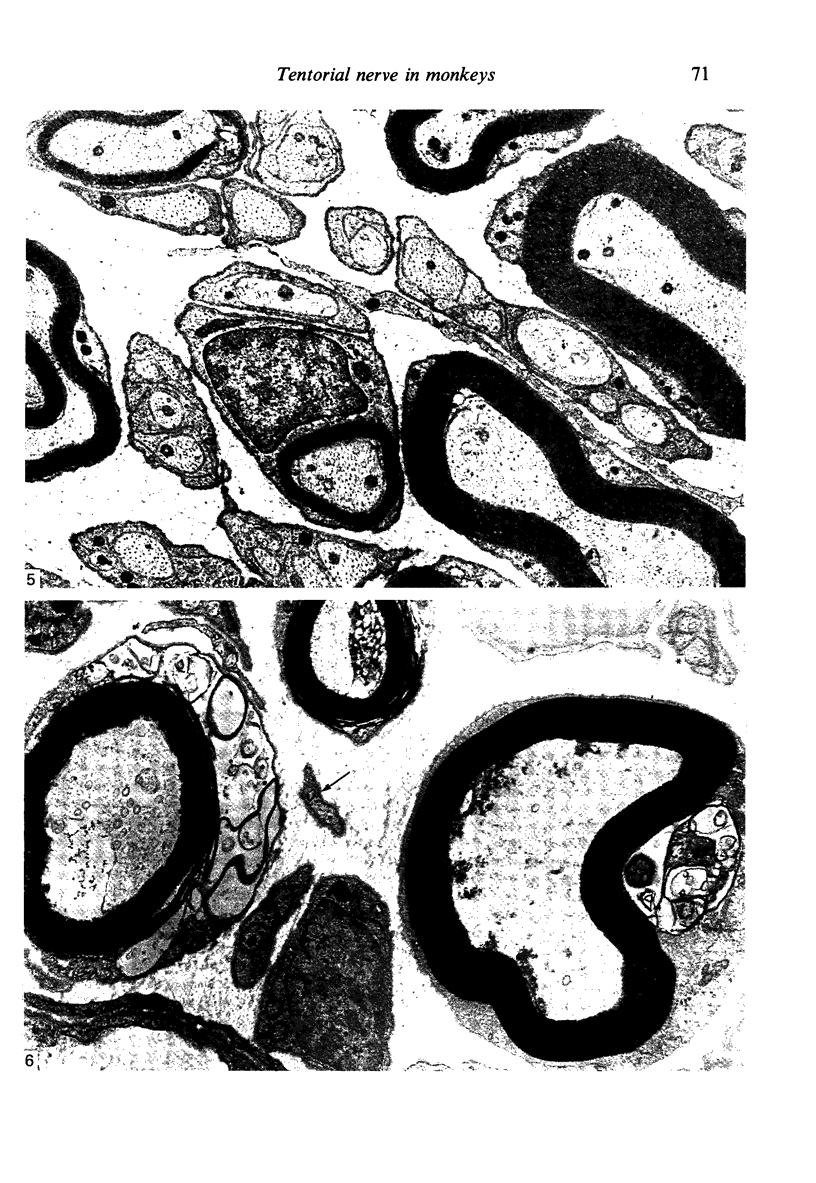
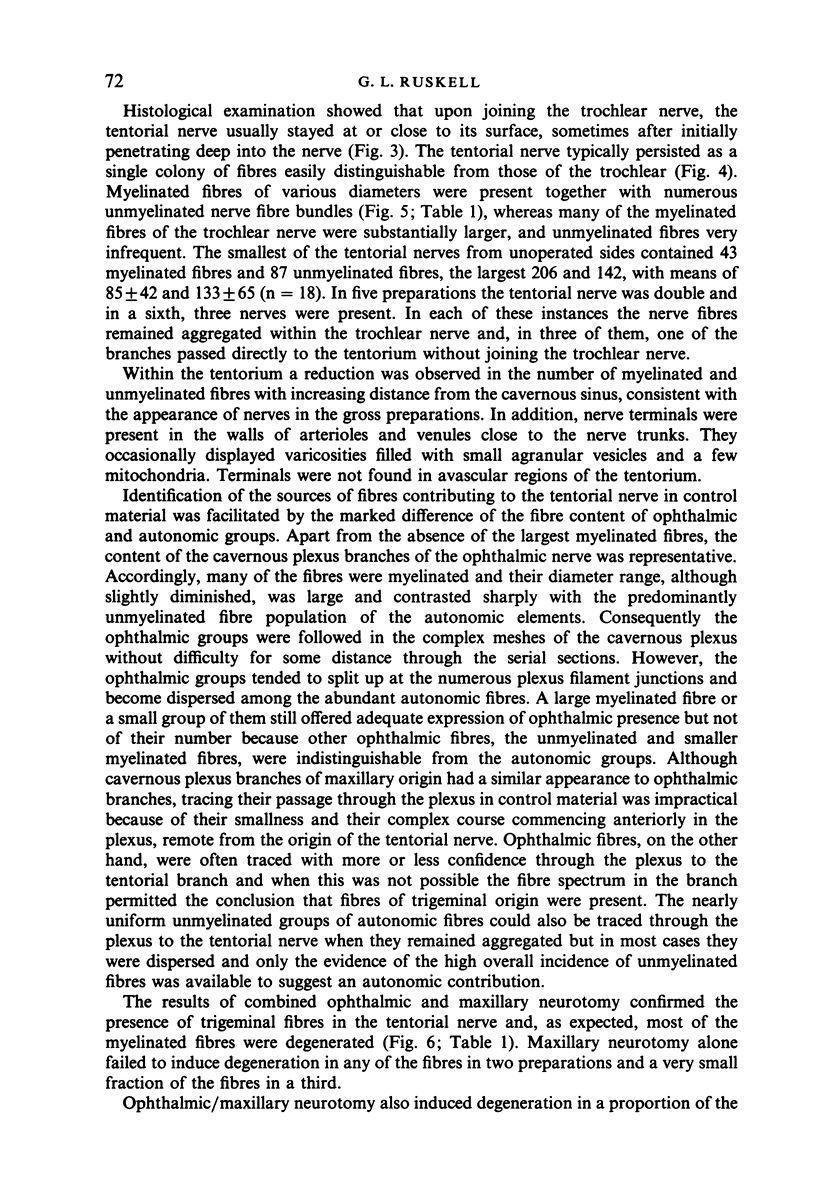
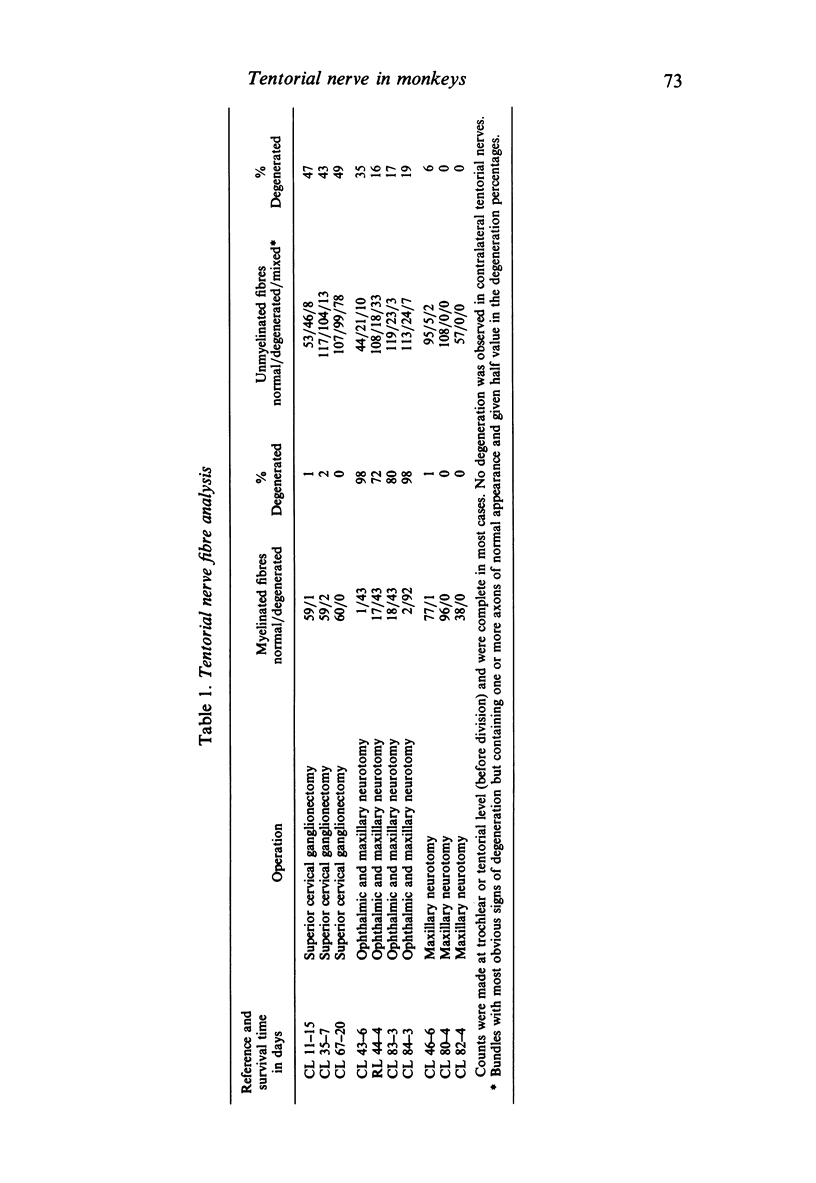
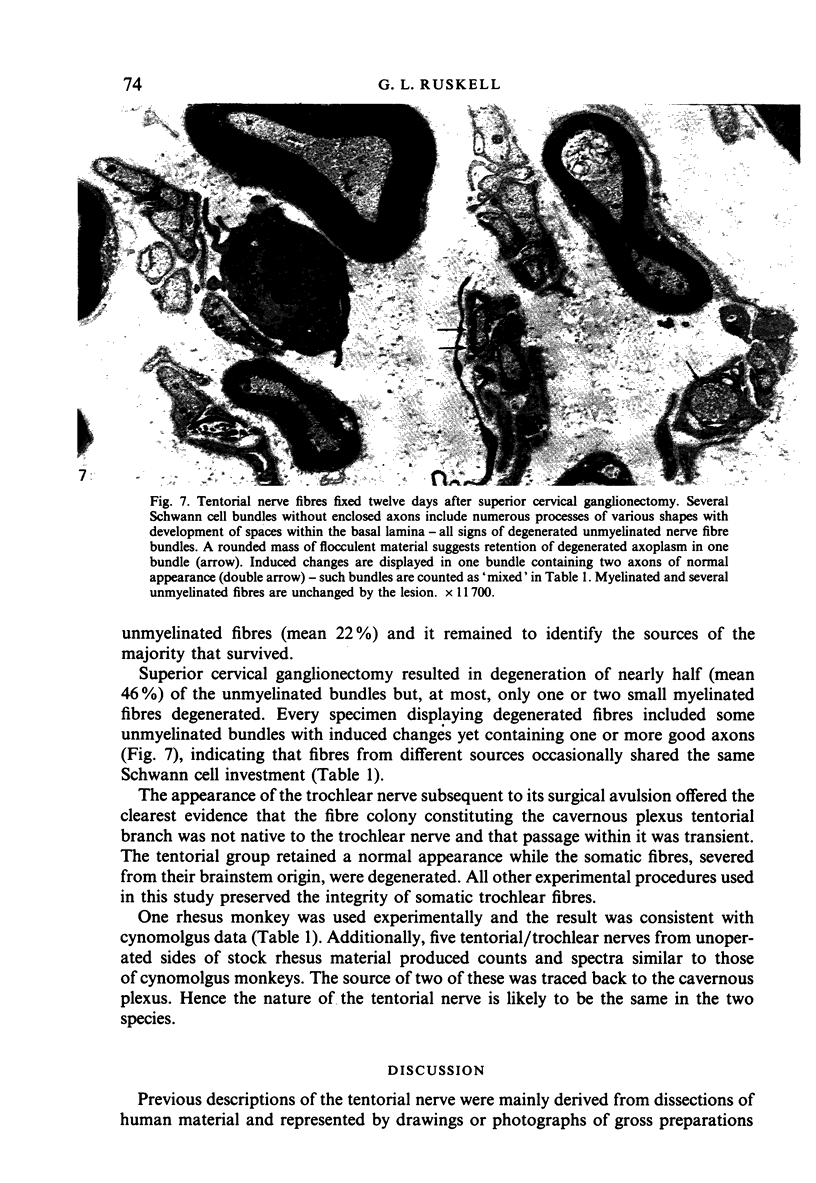
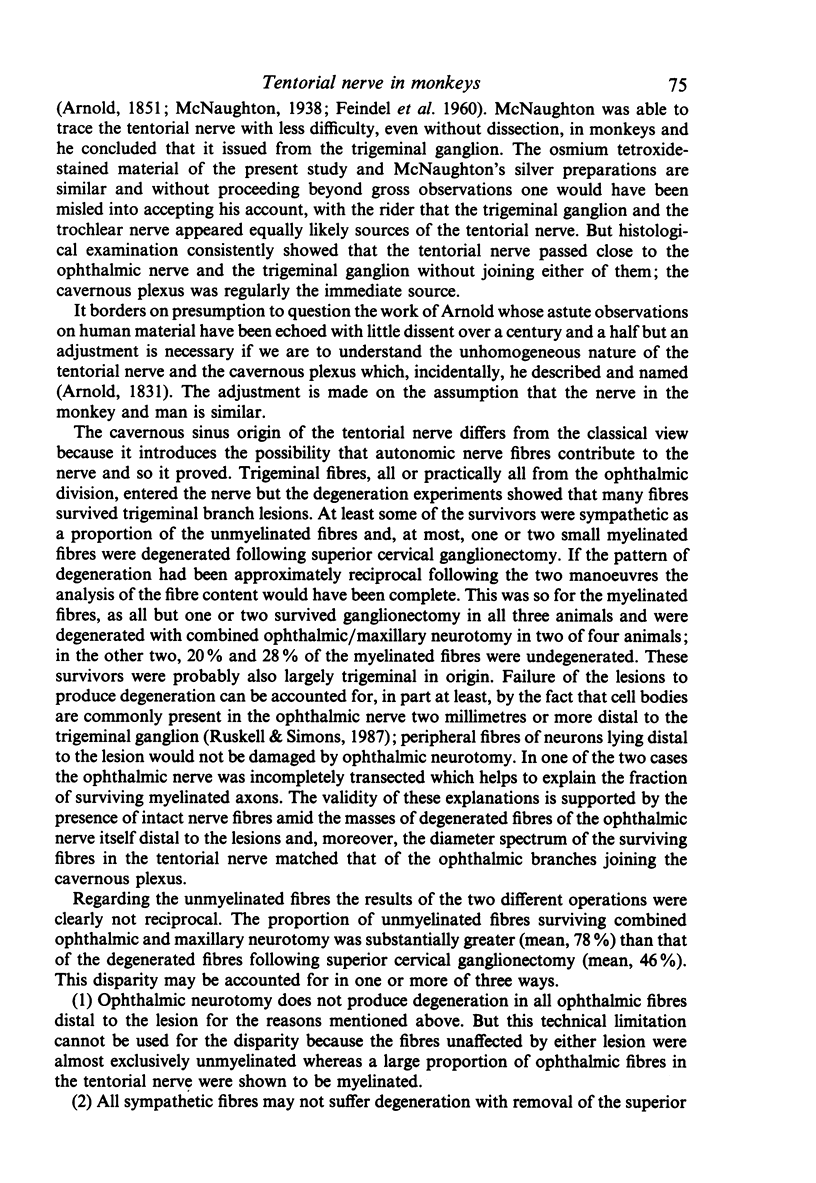
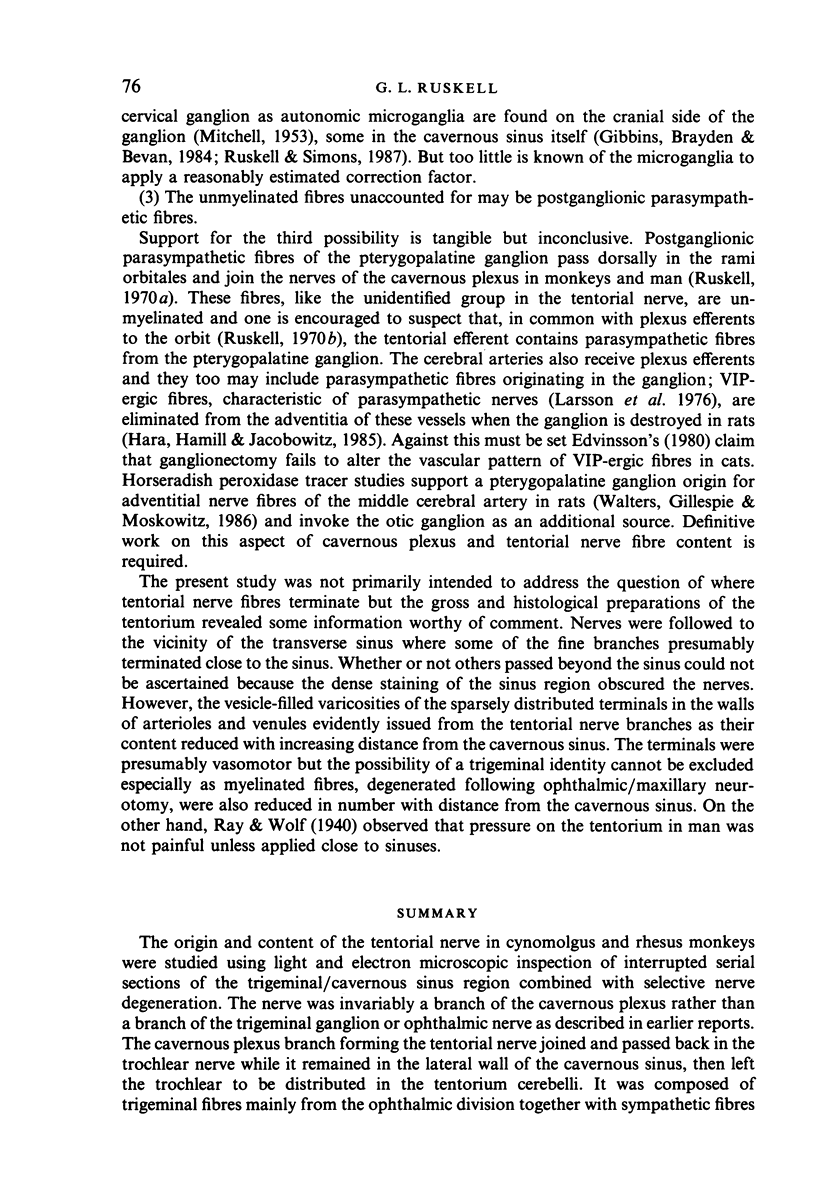
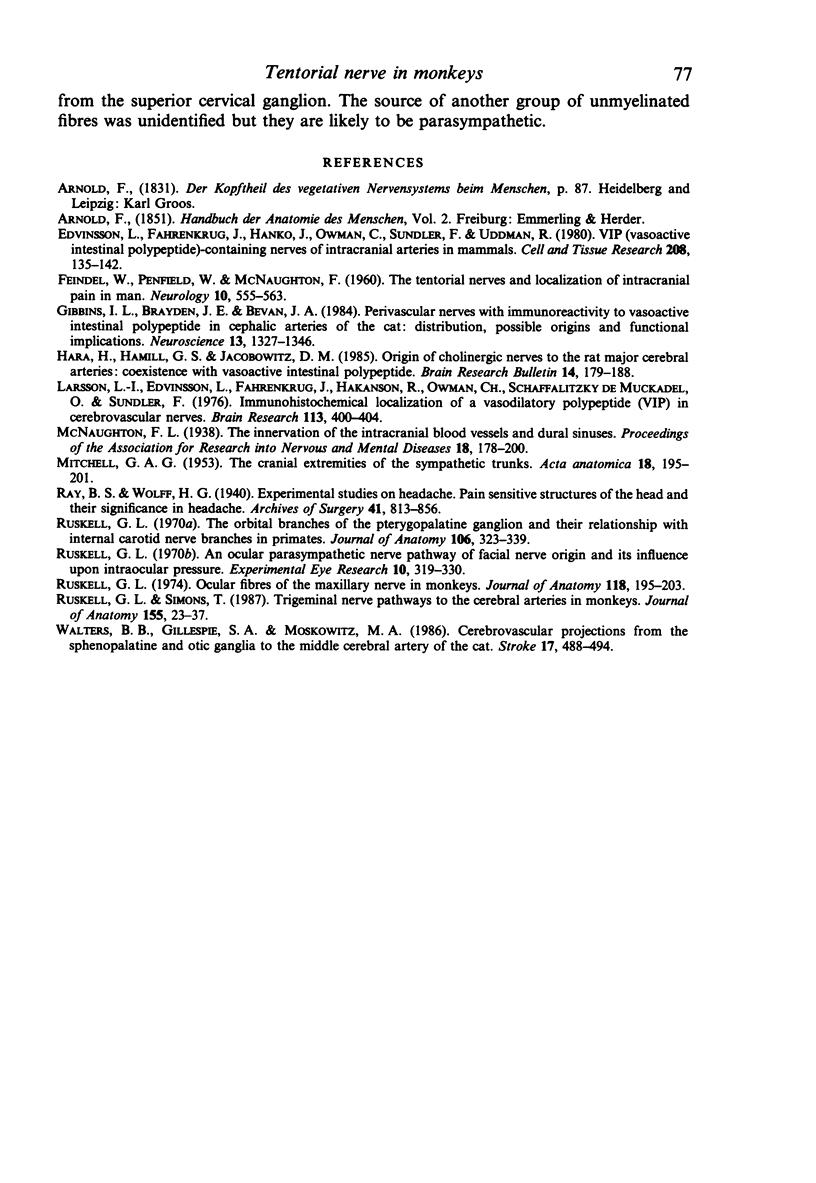
Images in this article
Selected References
These references are in PubMed. This may not be the complete list of references from this article.
- Edvinsson L., Fahrenkrug J., Hanko J., Owman C., Sundler F., Uddman R. VIP (vasoactive intestinal polypeptide)-containing nerves of intracranial arteries in mammals. Cell Tissue Res. 1980;208(1):135–142. doi: 10.1007/BF00234179. [DOI] [PubMed] [Google Scholar]
- FEINDEL W., PENFIELD W., McNAUGHTON F. The tentorial nerves and Iocalization of intracranial pain in man. Neurology. 1960 Jun;10:555–563. doi: 10.1212/wnl.10.6.555. [DOI] [PubMed] [Google Scholar]
- Gibbins I. L., Brayden J. E., Bevan J. A. Perivascular nerves with immunoreactivity to vasoactive intestinal polypeptide in cephalic arteries of the cat: distribution, possible origins and functional implications. Neuroscience. 1984 Dec;13(4):1327–1346. doi: 10.1016/0306-4522(84)90301-4. [DOI] [PubMed] [Google Scholar]
- Hara H., Hamill G. S., Jacobowitz D. M. Origin of cholinergic nerves to the rat major cerebral arteries: coexistence with vasoactive intestinal polypeptide. Brain Res Bull. 1985 Feb;14(2):179–188. doi: 10.1016/0361-9230(85)90077-2. [DOI] [PubMed] [Google Scholar]
- MITCHELL G. A. The cranial extremities of the sympathetic trunks. Acta Anat (Basel) 1953;18(3):195–201. doi: 10.1159/000140834. [DOI] [PubMed] [Google Scholar]
- Ruskell G. L. An ocular parasympathetic nerve pathway of facial nerve origin and its influence on intraocular pressure. Exp Eye Res. 1970 Oct;10(2):319–330. doi: 10.1016/s0014-4835(70)80044-6. [DOI] [PubMed] [Google Scholar]
- Ruskell G. L. Ocular fibres of the maxillary nerve in monkeys. J Anat. 1974 Nov;118(Pt 2):195–203. [PMC free article] [PubMed] [Google Scholar]
- Ruskell G. L., Simons T. Trigeminal nerve pathways to the cerebral arteries in monkeys. J Anat. 1987 Dec;155:23–37. [PMC free article] [PubMed] [Google Scholar]
- Ruskell G. L. The orbital branches of the pterygopalatine ganglion and their relationship with internal carotid nerve branches in primates. J Anat. 1970 Mar;106(Pt 2):323–339. [PMC free article] [PubMed] [Google Scholar]
- Walters B. B., Gillespie S. A., Moskowitz M. A. Cerebrovascular projections from the sphenopalatine and otic ganglia to the middle cerebral artery of the cat. Stroke. 1986 May-Jun;17(3):488–494. doi: 10.1161/01.str.17.3.488. [DOI] [PubMed] [Google Scholar]



